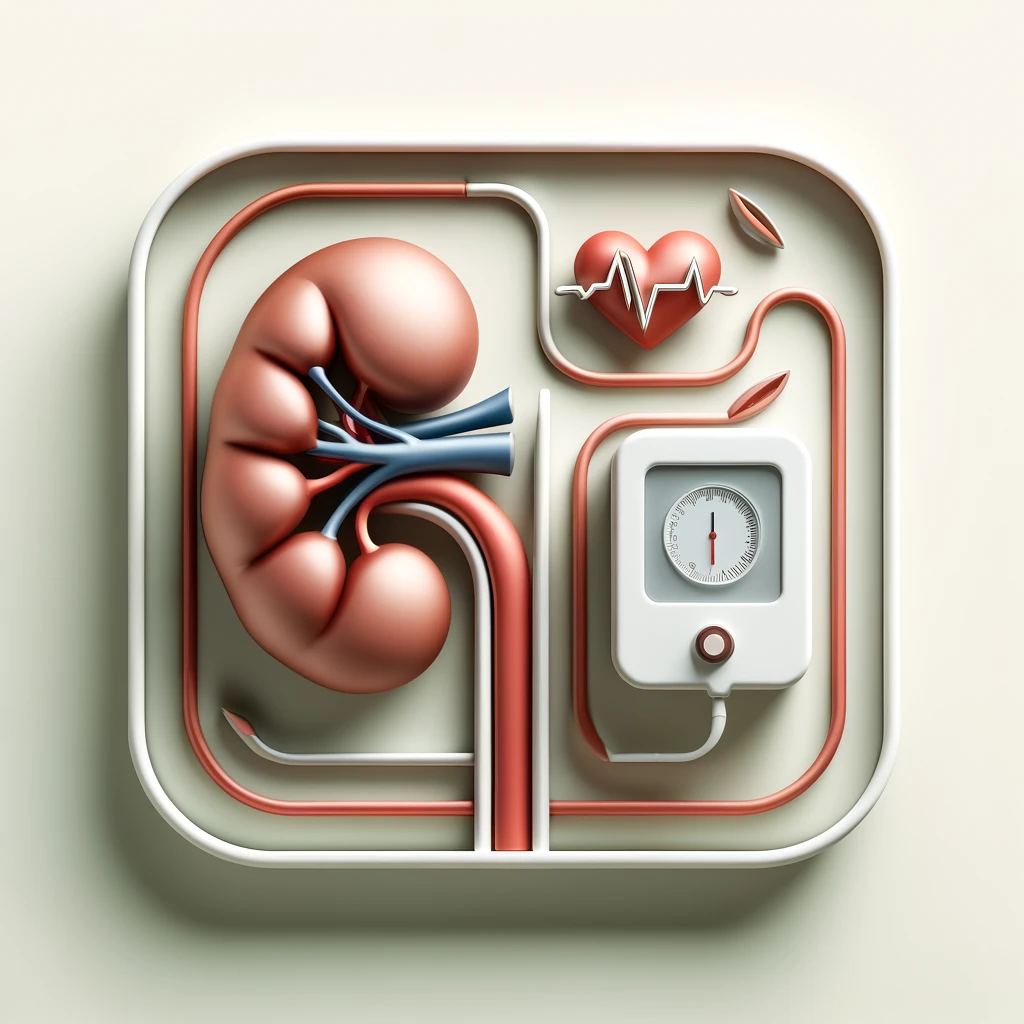
Hypertension is a prevalent and significant complication in patients with Chronic Kidney Disease (CKD). It not only accelerates the progression of renal impairment but also increases the risk of cardiovascular events. Effective management of hypertension in CKD patients is crucial to improving clinical outcomes and quality of life.
Pathophysiology Linking CKD and Hypertension
The relationship between CKD and hypertension is bidirectional; hypertension can both cause and result from CKD. Several mechanisms contribute to this complex interaction:
- Renin-Angiotensin-Aldosterone System (RAAS) Activation: In CKD, impaired kidney function leads to dysregulation of the RAAS, resulting in increased production of angiotensin II. This potent vasoconstrictor raises blood pressure by promoting sodium and water retention and increasing vascular resistance.
- Sodium Retention: Decreased glomerular filtration rate (GFR) in CKD patients impairs the kidneys’ ability to excrete sodium, leading to volume overload and hypertension. This sodium retention exacerbates fluid retention, further elevating blood pressure.
- Sympathetic Nervous System (SNS) Activation: CKD is associated with increased SNS activity, which contributes to hypertension by enhancing vascular resistance and promoting renal sodium retention.
- Endothelial Dysfunction: CKD patients often exhibit endothelial dysfunction, characterized by reduced production of nitric oxide (a vasodilator) and increased production of endothelin-1 (a vasoconstrictor). This imbalance favors vasoconstriction and hypertension.
- Uremic Toxins: Accumulation of uremic toxins in CKD can induce inflammation and oxidative stress, contributing to vascular stiffness and hypertension.
Challenges in Managing Hypertension in CKD Patients
Managing hypertension in CKD patients presents several challenges:
- Volume Overload: CKD patients often experience volume overload due to impaired sodium and water excretion. This condition complicates blood pressure control and necessitates careful volume management.
- Multiple Comorbidities: CKD patients frequently have comorbid conditions such as diabetes, heart failure, and cardiovascular disease, which can complicate hypertension management and require tailored therapeutic approaches.
- Drug Pharmacokinetics: Altered pharmacokinetics in CKD patients can affect the efficacy and safety of antihypertensive medications, necessitating dose adjustments and careful monitoring.
- Adherence to Therapy: Medication adherence can be challenging due to the high pill burden and potential side effects of antihypertensive drugs, as well as the complexity of managing multiple comorbidities.
Strategies for Hypertension Management in CKD
Effective management of hypertension in CKD involves a multifaceted approach, combining lifestyle modifications and pharmacological interventions.
Lifestyle Modifications
Non-pharmacological approaches play a critical role in managing hypertension in CKD. These include:
- Dietary sodium restriction, limiting sodium intake to less than 2 grams per day, which can help reduce volume overload and lower blood pressure.
- Weight management through diet and exercise can improve blood pressure control. Regular physical activity can lower blood pressure and improve cardiovascular health.
- Limiting alcohol and caffeine intake can help manage hypertension by decreasing the stimulatory effects on the cardiovascular system.
- Smoking cessation is essential as it reduces overall cardiovascular risk and improves blood pressure control.
Pharmacological Interventions
Pharmacological treatment is often necessary to achieve target blood pressure levels in CKD patients. Key classes of antihypertensive medications include:
- Angiotensin-Converting Enzyme Inhibitors (ACEIs) and Angiotensin II Receptor Blockers (ARBs): These medications are first-line treatments in CKD patients with hypertension. They inhibit the RAAS, reducing blood pressure and providing renal protection by decreasing proteinuria and slowing the progression of CKD.
- Diuretics: Thiazide diuretics are effective in early stages of CKD (stages 1-3), while loop diuretics are preferred in later stages (stages 4-5) due to their ability to manage volume overload more effectively.
- Calcium Channel Blockers (CCBs): These medications help to reduce blood pressure by dilating blood vessels. They are often used in combination with ACEIs or ARBs to achieve better blood pressure control.
- Beta-Blockers: Beta-blockers are useful, particularly in CKD patients with concomitant heart disease. They reduce blood pressure by decreasing heart rate and cardiac output.
- Aldosterone Antagonists: These are beneficial in patients with resistant hypertension or heart failure, as they block the effects of aldosterone, reducing sodium retention and vascular stiffness.
Combination Therapy
Often, CKD patients require more than one antihypertensive agent to achieve target blood pressure. Combination therapy can provide synergistic effects, addressing multiple pathophysiological mechanisms of hypertension in CKD.
Continuous monitoring of blood pressure and kidney function is critical. Adjustments in medication type and dosage are often needed based on the patient’s response to treatment and any side effects experienced.
Conclusion
The interplay between CKD and hypertension involves complex mechanisms such as RAAS activation, sodium retention, SNS activation, endothelial dysfunction, and the presence of uremic toxins. Overcoming the challenges of volume overload, multiple comorbidities, altered drug pharmacokinetics, and medication adherence requires a comprehensive approach.
Lifestyle modifications and pharmacological interventions, particularly the use of ACEIs, ARBs, diuretics, CCBs, beta-blockers, and aldosterone antagonists, are central to effective hypertension management. Regular monitoring and individualized treatment plans are vital to achieving optimal outcomes for CKD patients.
Quiz
Please note that our articles are not intended to guide personal health decisions.
This content has been curated by Renes Care. Unauthorized use or reproduction is prohibited.
© Renes Care. All rights reserved.
